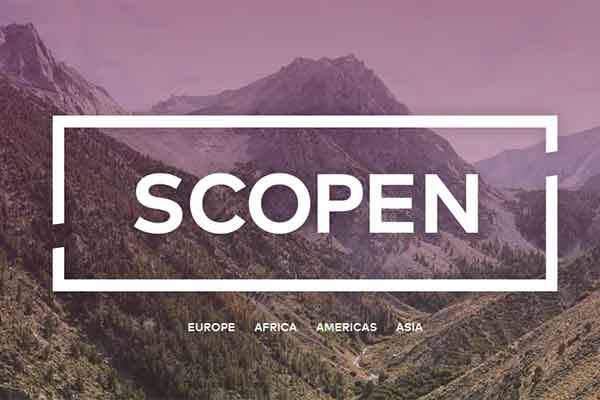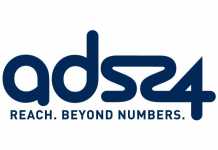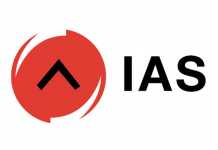Nowadays, and as we are gradually coming out of a global recession and economic crisis in which communication agencies have been greatly affected, all agencies of all disciplines have continued to compete ferociously for local clients. And sometimes, we have found that independent agencies have achieved higher billings than some of the multinational agencies.
In the AGENCY SCOPE SOUTH AFRICA 2016, we found that the value of independence versus multinationalism or membership of international networks was not verbalized by marketers when selecting an agency, and neither when defining its ‘ideal’ Agency. This happens not only in South Africa but also in many other countries.
In South Africa, only 4.7% of marketers stated that it is a deciding factor for them that the selected agency is independent; 28.6% give the factor of independence a certain level of importance and almost a half of them (47.6%) think that this issue does not have any importance.
28.6% of marketers also recognized that it is not important for them whether the agency is multinational. This means that agency independence or internationalism are not influential factors for marketers when selecting an agency.
Nonetheless, it is important that 19% of marketers acknowledged that it is a deciding factor that the agency belongs to an international network and a 24% state that it is important.
This means that independent agencies have no access to 43% of the accounts assigned in South Africa, unless they have a network of independent agencies that can cover the needs of their clients in other countries.
The internationalization of some South African companies has led to the need of an international network that is becoming increasingly relevant for marketers. Foreign multinational marketers and now South African multinational marketers, require agencies that have a network in other countries.
And this expansion of South African companies also pushes South African agencies to provide services within the region, especially sub-Saharan Africa. Maybe the most successful are Joe Public, Jupiter, King James, House of Brave, OFyt and 34. In the ranking of the most creative agencies in the AGENCY SCOPE study, we find revealing results for independent agencies: in the top 20 there are 11 independent agencies, and in the top five there are two
The five independent agencies that appear with stronger positions among South African marketers are: Black River, House of Brave, Joe Public, King James and Promise (in alphabetical order as ranking order varies).
And more importantly: in the ranking of the top five agencies best rated by their clients we find three independent agencies. These agencies lead not only in attributes related to creativity, but in other key aspects such as strategic planning, digital capabilities, integrated services, management team involved in the accounts, value for money, good account service…
We found that when marketers had to evaluate account service, in general, there was not much difference between multinational and independent agencies. But if we take into account the marketers’ point of view when they evaluate the agencies they work with, the main strengths of independent agencies are those related to service: proactivity, senior managers’ involvement in the accounts, meeting deadlines and efficient problem solving. Overall clients rank working processes in independent agencies as being better than in multinationals.
| MULTINATIONALS | INDEPENDENTS | |
| Good account servisse | 80.7 | 78.9 |
| It is a proactive agency | 45.6 | 60.5 |
| Senior managers get involved in the account | 82.5 | 92.1 |
| Meets deadlines | 45.6 | 68.4 |
| Efficient problem solving | 63.2 | 86.8 |
| Good working process | 68.4 | 78.9 |
A general value of this sector, regardless of the type of agency, and for which they should be very proud of, is the high level of the professional teams, evaluated positively in 87% of the cases, both in multinational and independent agencies.
Strategic Planning is something in which multinational agencies stand slightly higher (63%) than independents (58%), teams are often more numerous in network agencies (which can also count on their international resources). Knowledge and understanding of clients’ businesses stands out in both types of agencies, highlighted by clients working with independent agencies (74%) compared to those working with multinationals (72%).
If we analyse creative attributes, we also find that independent agencies stand out far above the multinationals. More than twenty-five percentage points in innovation (65.8% vs. 40.4%), but also in good thinking beyond traditional advertising (42.1% vs. 68.4%) and effective creativity (81.6% vs. 66.7%).
| MULTINATIONALS | INDEPENDENTS | |
| Good thinking beyond traditional advertising | 42.1 | 68.4 |
| Effective creativity | 66.7 | 81.6 |
| Innovative agency | 40.4 | 65.8 |
As marketers value more attributes related to creativity and account service, in independent agencies, it is logical that they also appreciate better value for money in those agencies, compared to multinationals (55% vs. 44%).
In other respects, there are not so many differences between the two types of agencies. Marketers give the same value to strengths such as understanding of the consumer, good momentum, or pricing structure.
And also aspects where we identify weaknesses and opportunities for improvement, such as digital skills, branded content, or tools to evaluate ROI.
The great majority of marketers work with both multinational and independent agencies at the same time, tapping into each other’s talents and abilities. The ability of Marketing directors to take advantage of the strengths of both of them, becomes a clear path to success in their work and the brand communications they manage.
Johanna McDowell comments,” South Africans are demonstrating their successes and, after a period where everything that came from outside was always better, including the multinationals because of their international profiles, it seems that we are reaching another stage in which we proudly show local talent.” She adds that South Africa is also pushing this talent, in a far less chauvinistic or protectionist way, unlike the Brazilian, Australian and New Zealand markets.
Technology and the access to information, talent and innovation have helped independent agencies to have a different vision and capacity, sometimes even better than multinationals. The agility of their processes, the ability to make immediate decisions and the proximity of their leaders to the clients, are not always possible in larger structures.
We are convinced that we must defend local talent and entrepreneurship. This activates, not only the economy, but the circulation and growth of South African talent.
In a world where users increasingly value their local brands (as stated in Brand Capital by Y&R), and in categories such as food where people are concerned about carbon footprint and local production, it makes perfect sense that, in communications also, we give value and support to local brands and local talent.
About SCOPEN
SCOPEN Africa was launched in South Africa in 2016 in partnership with the Independent Agency Search & Selection Company. The partnership between IAS and SCOPEN Africa is structured as follows: Mazole Holdings – which owns 100% of IAS now owns 26% of SCOPEN Africa ( Grupo Consultores Africa). Mazole is 40% black owned with a level 4 BEE rating. For information on SCOPEN Africa please visit scopen.com
About the IAS
The IAS (Independent Agency Search and Selection Company) in association with the AAR Group (UK) was founded in South Africa by the Mazole Holdings Group in 2006. IAS specializes in client/agency relationship management and helping clients find agencies. International associate company AAR Group, was founded more than 35 years ago in the UK and has associates and branches throughout the world.
The Independent Agency Search & Selection Company is committed to the international and local pitch guidelines as defined by both the IPA (Institute of Practitioners in Advertising UK) and the ACA (The Association of Communications Agencies SA).
IAS is owned 100% by Mazole Holdings. Mazole Holdings is a South African company owned 51% by Dan Moyane and 49% by Johanna McDowell. Mazole focuses on building businesses in the marketing and communications space.
The IAS is a level 2 BEE contributor.























































































